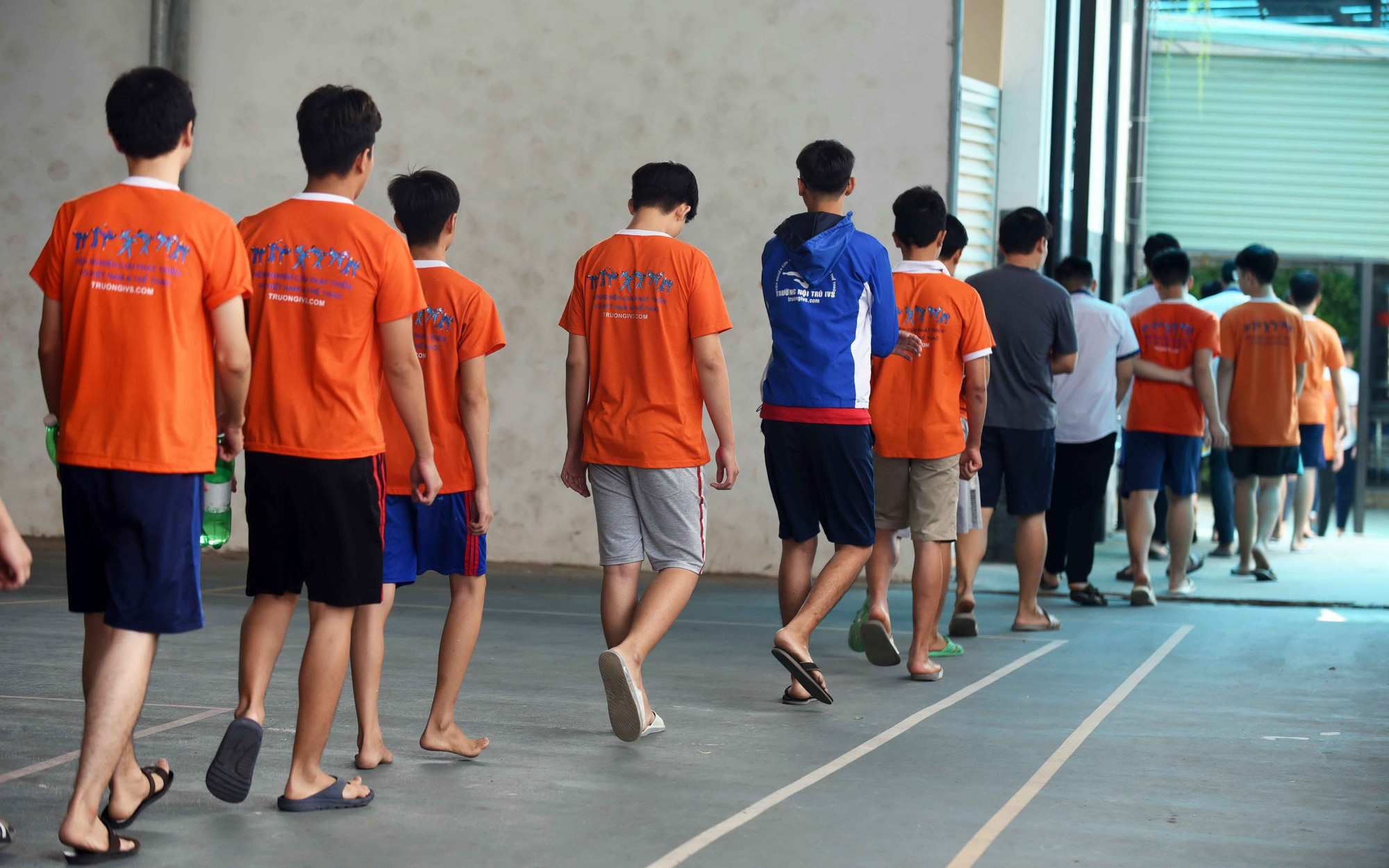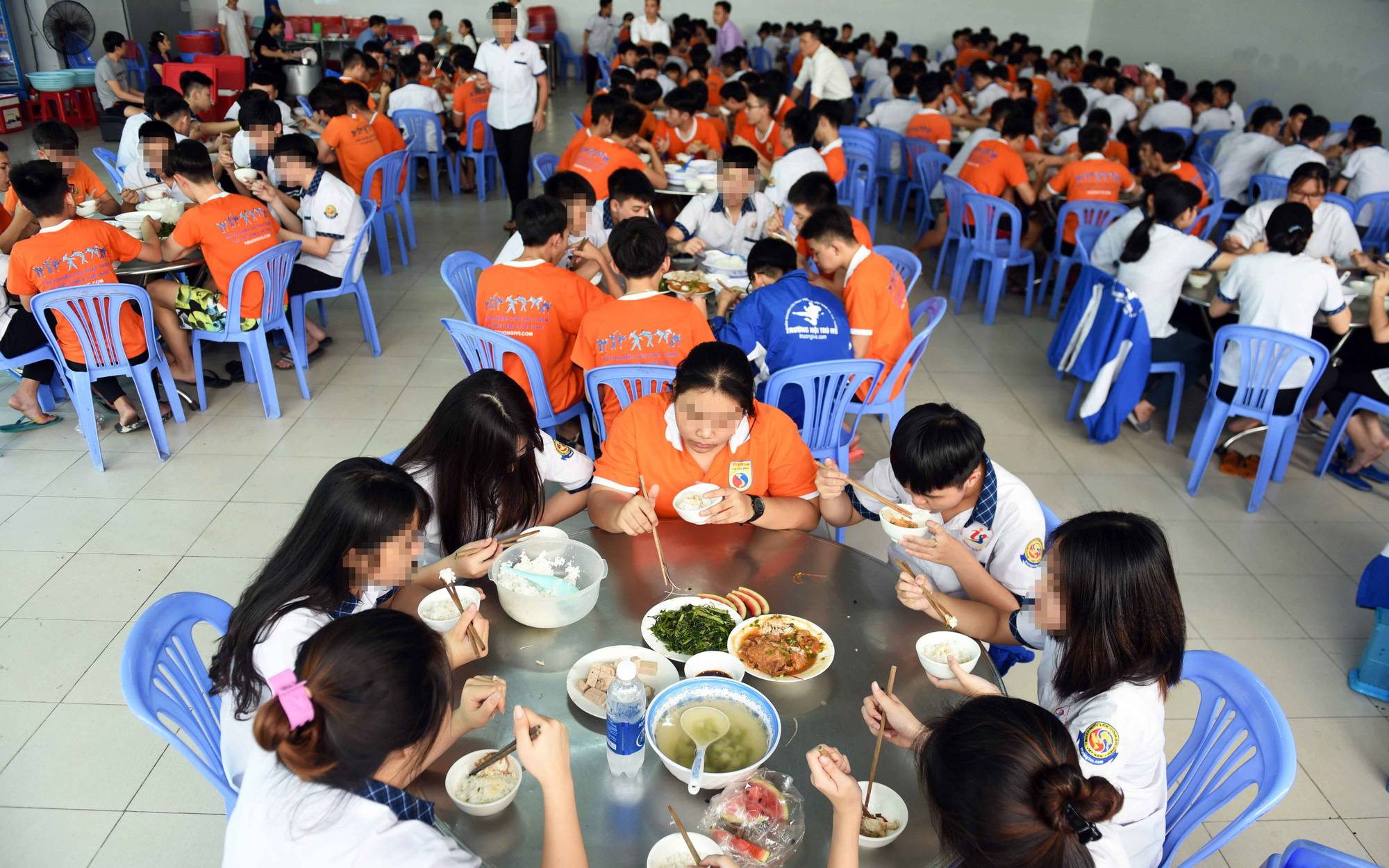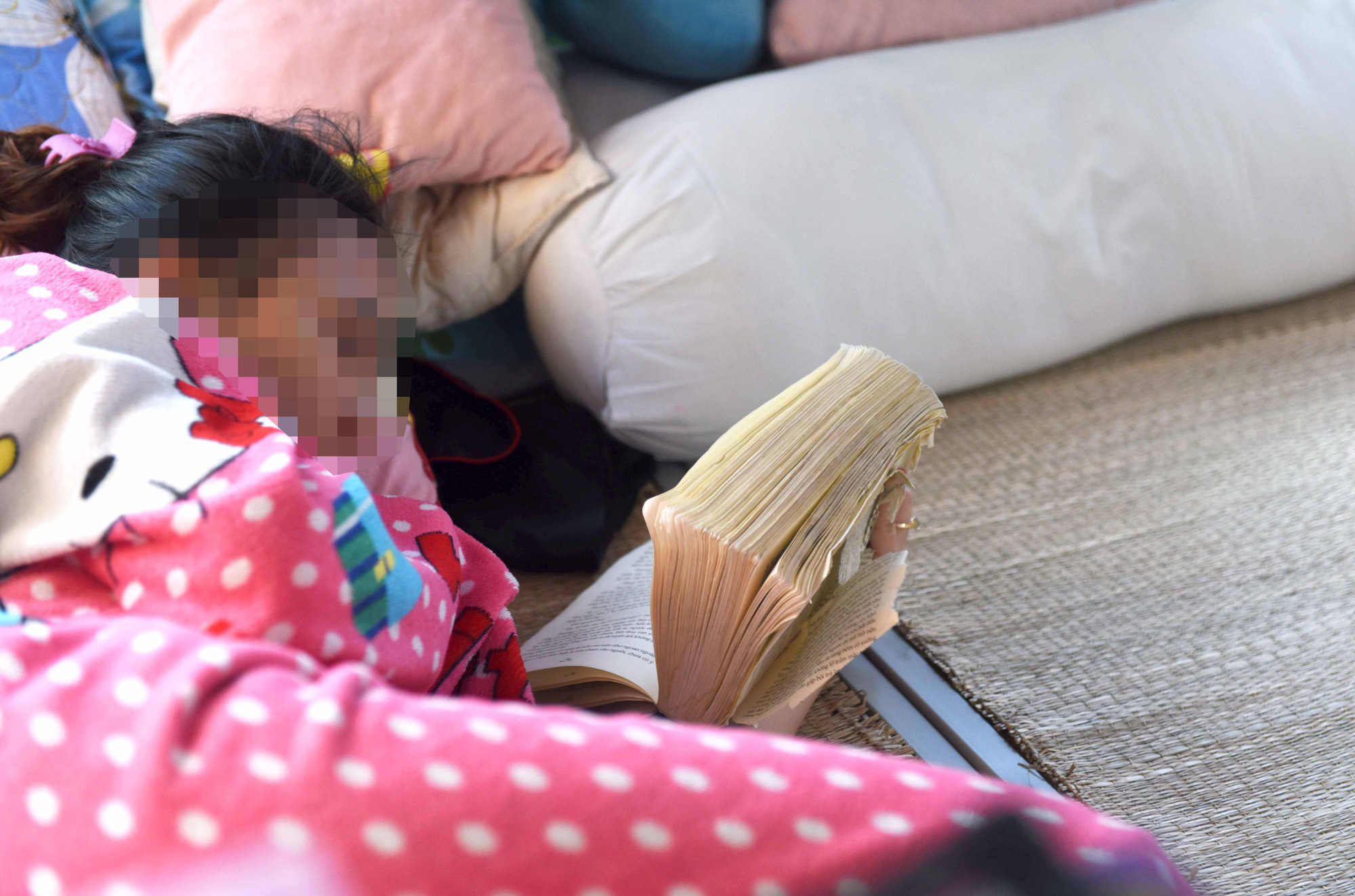A boarding school in District 12, Ho Chi Minh City has been providing 'military-style therapy' for a considerable proportion of the troubled young population in the city and neighboring provinces.
The IVS boarding school is home to over 300 students aged 15-18 who are diagnosed with either mental problems or video game disorder.
According to Asia Pacific Talent Young Training Center, a specialist agent in life skills training and holistic education, 72 percent of students in a recent survey admitted to being game addicts.
Among those, nearly 17 percent said they had played truant for gaming reasons.
Among the addicts, over 60 percent are in the 11-15 age group.
Primary school children, middle school students, and tertiary undergraduates take up 5.1 percent, 19.2 percent, and 15.4 percent, respectively.
With such staggering numbers, concerned parents in southern Vietnam have turned to IVS in the hope that the school can help their children turn over a new leaf.
‘Boot camp’
It was still dark at 5:30 am on a winter morning of 2019 when the lights were switched on at the campus of IVS, a boarding school for special needs children and game addicts in District 12.
A daily message then played through the loudspeakers installed around the campus: “It’s time to rise and shine. Please tidy up and get ready for school.”
In a military-like manner, all the students were up on their feet in a matter of minutes, getting themselves ready for another gadget-free day.
Everyone had their share of tasks to do on the school ground.
Some swept the schoolyard; some cleaned the rooms; some were in charge of tidying up the bunk beds, the gym, and the halls; while others took out the trash and cleaned the toilet.
All was done within 60 minutes, followed by lines of students heading to the communal hall for breakfast.
Lessons started at 7:00 am sharp.
|
|
| Students have meals at the IVS boarding school in District 12, Ho Chi Minh City. Photo: Duyen Phan / Tuoi Tre |
“I was frustrated at first [because] we had to wake up too early every day. And I didn’t like all the cleaning we had to do,” one student said.
“The campus is just so big. We even have to wash our own clothes. This is so not like home.”
The late afternoon is for mandatory 'optional' activities, where students have to choose two of the activities out of a few choices including soccer, volleyball, swimming, gymnastics, martial arts, dancing, singing, and so on.
Meanwhile, students with hyperactivity disorder are required to take yoga classes.
“It’s like a boot camp around here. There’s a fixed time for everything,” another student said.
“We take turns to use the bathroom from 6:00 pm, then have dinner at 7:00 pm. After that, we have around 45 minutes for chit-chatting or watching TV. Then it’s schoolwork again. We all have to go to sleep at 10:00 pm.”
'I’m going crazy'
Teenagers at the school generally go through a phase of utmost frustration during their first few weeks since the new environment is a far cry from their indulging homes.
According to T., an 11th grader, IVS’ regulations forbid any use of smart devices and computers.
To a once-zealot gamer like him, the experience is no different than being in prison.
Others have resisted by more desperate measures like staging hunger strikes.
“Most of these hunger-strikers quit after 1-2 days. But I got through one whole week. I talked to no one,” said V., another 11th grader.
“I hoped that should move my parents and they would take me home.”
However, her parents never came. It was the school’s activities that pulled V. out of her misery.
“I saw some friends doing contemplation while walking around campus. The scent of essential oil called to me. I had a little chat with the instructor, and he helped me change,” V. said.
But it is not just the children that may lose their minds.
Hung and Thom from Dong Nai Province had to sign their 14-year-old daughter up for this rehab program because for days she would not put down her smartphone until 3:00 am.
“She simply wouldn’t listen. When we confiscated the phone, she wouldn’t go to school. We’ve had some real family rows,” the couple said.
“The health counselor said we had to curb her phone use, but we basically did not know how.”
The rebellious girl once cut her wrists with a sharp blade and said she would “rather die” than live without her smartphone, the parents recounted.
At the end of their tether, her parents turned to IVS.
“We love her. I do hope she can be back to normal once more.”
|
|
| A student reads a book instead of playing on their smartphone at the IVS boarding school in District 12, Ho Chi Minh City. Photo: Duyen Phan / Tuoi Tre |
A school for the region
According to Nguyen Dinh Quynh, a janitor at IVS, most of the students here are addicted to gaming and smart devices, with bad behavior and some mental problems like antisocial personality disorder or attention deficit hyperactivity disorder (ADHD).
They come from Ho Chi Minh City and nearby provinces.
“There is a unique treatment plan for each case, but there is also a common schedule for all of them,” Quynh said.
“After regular school hours in the morning, they all have lunch and get ready for needs-specific activities in the afternoon.”
The janitor also noted that the majority of the students are admitted to the school against their will.
They tend to make quite a scene after finding out they would be stuck here for some time to treat their addiction, Quynh said.
A common response is to stop eating and refuse to communicate.
“However, there have been worse cases and we’ve had to put them in special care rooms with CCTV,” he added.
“Here, the students get to talk with three consultants. We also rotate teachers to make sure the kids find compatible mentors.”
According to IVS vice-director Dang Le Anh, the treatment therapy for these troubled gaming addicts takes three distinct stages.
First, they will be familiarized with alternatives like playing sports or practicing martial arts.
Then, they are coached along the way to fight the addiction by themselves and be free from the phone.
Finally, they will be well-educated on the negative impact of gaming addiction and will be trained in resisting the temptation.
Anh cautioned that a six-month therapy should be enough for children who have only been addicted for several years, but the ‘recovery’ phase after that is way more important.
They will need a happy and healthy environment fostered by adults to avoid getting drawn back into the addiction.
“That environment should be free from performance pressure and high expectations from parents. Instead, the children should learn a sense of responsibility,” Anh said.
Like us on Facebook or follow us on Twitter to get the latest news about Vietnam!



















































